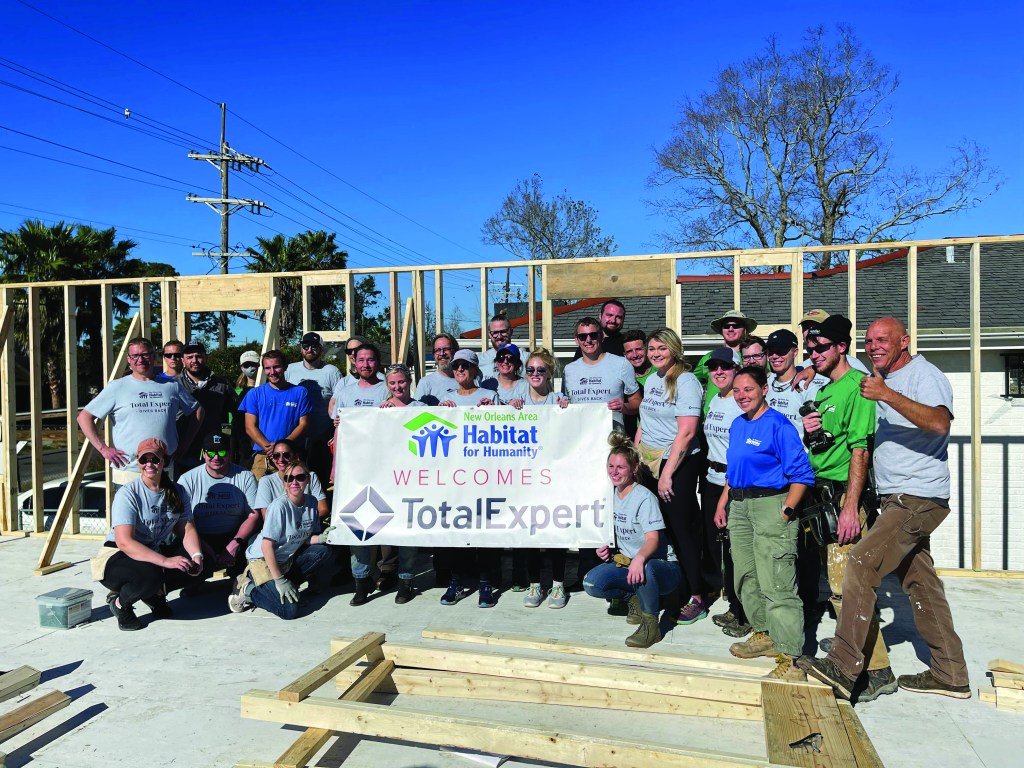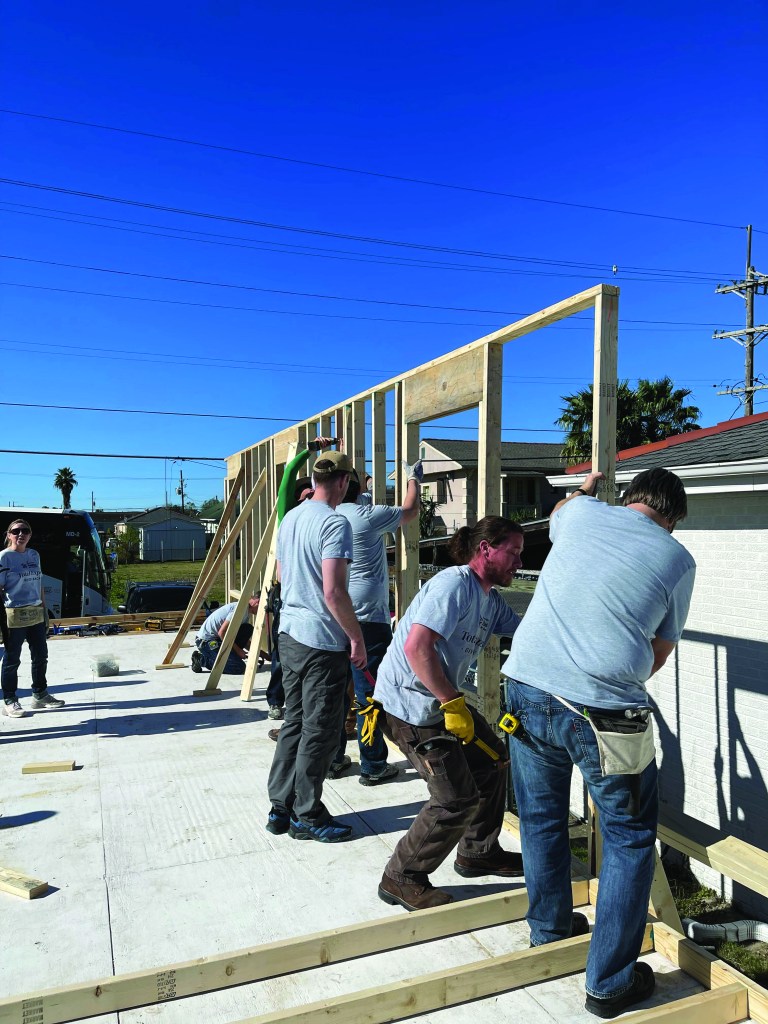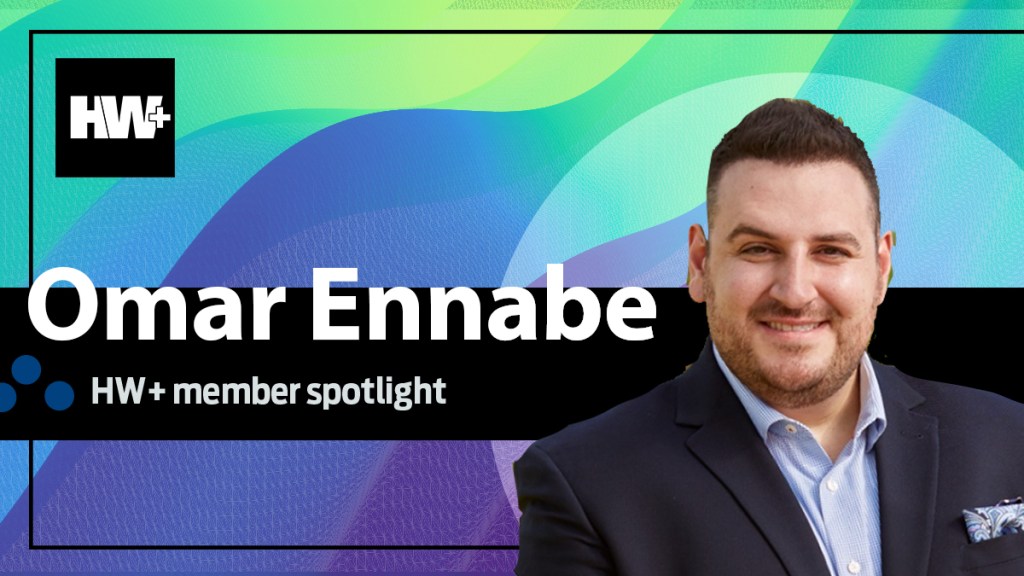Mortgage – HousingWire |
- Mr. Cooper lays off workers as originations nosedive
- Total Expert team members give back after Hurricane Ida
- Homepoint exits correspondent following deal with Planet Home Lending
- Refinance volume has “dried up,” Old Republic says
- Opinion: the beginning of the mortgage ice age
| Mr. Cooper lays off workers as originations nosedive Posted: 29 Apr 2022 01:34 PM PDT Add Mr. Cooper Group to the list of mortgage originators and servicers reducing staff: pink slips arrived for 250 employees in the first quarter, as the company faced declines in the earnings from loan originations. And the company is forecasting a few tough origination quarters ahead. "While the mortgage industry experienced record high origination volumes in recent years and resources were scaled up to meet consumer demand, the industry now faces higher interest rates leading to lower originations volume," a spokesperson for Mr. Cooper Group said in a statement. On Thursday, Mr. Cooper Group reported its first quarter earnings, with a net profit of $658 million, due to gains with mortgage servicing rights (MSR) and a deal with the fintech Sagent to create a cloud-native servicing platform. During a conference call with analysts, Chris Marshall, vice chairman and president, said that rationalizing capacity is an unavoidable theme for everyone in originations. "In the second quarter, you will see us taking charge of staff reductions related to our lower originations." Given the magnitude of the rate increases over the last 90 days, the company forecasts quarterly origination volume earnings in the range of $65 million to $85 million for the rest of 2022, compared to $157 million in the first quarter. The Q1 2022 figure represented already a 14% decline quarter-over-quarter and a 57% drop year-over-year. Also, the company forecasts funded loan volume of around $8 billion. Mr. Cooper Group originated $11.6 billion from January to March, down 32.5% quarter-over-quarter and 54% year-over-year. Gaining an Unfair Advantage in a Challenging Mortgage Market: A Data Driven Approach With total originations expected to shrink 35%, (from $4 trillion in 2020 and 2021 to $2.5 trillion for the next three years), some lenders will be on the losing end of the equation. But what if you had an unfair advantage in this climate? This white paper will cover how you can tap into an unfair advantage that helps you not only survive, but thrive. Presented by: TeraverdeThe Gain-on-sale margin somewhat surprisingly increased to 1.53% in the first quarter, compared to 1.41% in the previous three months. (Executives said Thursday it was due to origination declines focused on the correspondent channel, which has lower margins.) In the first quarter of 2021, the GOS margin was at 1.63%. In April, the company announced the promotion of two of its own into executive vice president roles. Jaime Gow is holding the executive vice president and chief financial officer position. Meanwhile, Ethan Elzen landed as executive vice president of business development and operational finance. According to Jay Bray, chairman and CEO, the promotion of both executives will play an important role as the company continues to grow to "a $1 trillion servicer." Mr. Cooper ended the first quarter with $796 billion in unpaid principal balance (UPB), a 12% increase quarter-over-quarter and a 27% growth year-over-year. The post Mr. Cooper lays off workers as originations nosedive appeared first on HousingWire. |
| Total Expert team members give back after Hurricane Ida Posted: 29 Apr 2022 12:55 PM PDT  Total Expert team members took a trip to Louisiana earlier this year to help the New Orleans Area Habitat for Humanity organization. In partnership with the nonprofit, the team was able to rebuild a home that was destroyed by Hurricane Ida, a Category 4 Atlantic hurricane that made landfall in Louisiana at the end of August last year. "It's pretty incredible what you can accomplish when a team of people band together," said Corinne Seltz, leadership and development manager at Total Expert. "In just two days, we framed an entire house in support of hurricane victims. What's more, it was a natural team-building endeavor. "With our employees spanning across the country and many working from home full-time, we've lost the typical face-to-face interactions.  Our employees left New Orleans with a great sense of accomplishment and new relationships formed. We also made a cash donation to Habitat for Humanity to help them expand their efforts," she added. Touching on how the team was able to come together for this cause, Seltz said, "We couldn't be more proud of our employees who stepped up and made the trip to New Orleans to make a difference in others' lives. Being in the financial services industry puts a whole new meaning to giving the gift of homeownership — particularly to those impacted by a devastating event." While Seltz explained that the COVID-19 pandemic has played a role in Total Expert’s ability to partner with nonprofits for events like this, it hasn't slowed down their volunteer efforts. "If anything, it's sparked a greater need to support nonprofits of all kinds and prompted us to be creative in how we give back. If in-person activities aren't an option, we source other avenues such as virtual food drives and mailing materials to local organizations," Seltz said. Looking ahead, Total Expert is far from done when it comes to giving back. With the company headquartered in Minneapolis, Minnesota, Seltz said they are particularly excited about working with the Habitat for Humanity Twin Cities, and given the response from the New Orleans trip, they anticipate even more employees signing up to put their homebuilding skills to use. "Total Expert is rooted in empowering financial institutions to form deeper relationships." Seltz said, "These efforts have allowed us to take relationship-building to the next level."  This piece on Total Expert was originally featured in the April Issue of HousingWire Magazine. To read the full issue, click here. The post Total Expert team members give back after Hurricane Ida appeared first on HousingWire. |
| Homepoint exits correspondent following deal with Planet Home Lending Posted: 29 Apr 2022 07:26 AM PDT Connecticut-based mortgage servicer and lender Planet Home Lending has entered into an agreement to acquire assets from Homepoint‘s delegated correspondent channel for $2.5 million in cash, the companies announced on Friday. The move signals Homepoint’s exit from the correspondent channel to focus on wholesale. Homepoint was the 11th biggest residential mortgage lender in the country last year, originating $96 billion in residential mortgages, up 55.2% year-over-year. The Michigan-based lender ranked 13th in the correspondent channel in 2021, with $20.7 billion in volume. However, the gain-on-sale margins in the correspondent channel were just 31 basis points last year, compared to 234 bps in the wholesale channel. The deal "enables us to further streamline our organizational focus and ensures that our delegated correspondent partners are matched up with another company that shares our principles of offering great service and competitive pricing," said Willie Newman, Homepoint's president and CEO. Homepoint has taken some decisions to focus on growing its originations business and to reduce expenses. According to mortgage stock analysts, the company has a high cost structure given its lower scale, compared to its competitors, notably UWM. Homepoint's management is working to lower the cost to originate a loan to $900 in 2022, from $1,700 in the first quarter of 2021. In February, the company announced it is outsourcing the servicing business to ServiceMac, a First American company. Critically, the move reduces costs: Homepoint had over 300 employees in mortgage servicing operations, who were laid off but subsequently hired by ServiceMac. The decision to have ServiceMac be the subservicer follows Homepoint's move in November to wind down its Ginnie Mae servicing business. Why 2022 could open more opportunities for subservicing With production volumes flattening out and non-QM originations increasing, the need for originators to focus resources and cost on the front end of the business could lead to more subservicing opportunities. Presented by: Selene FinanceFounded in 2007, Planet Home Lending originated $28 billion in 2021, up 45% year-over-year, checking in as the 31st biggest lender in the U.S., according to Inside Mortgage Finance. In the correspondent channel, the lender is ranked 12th, with a volume of $22.8 billion in 2021. "Acquisitions like this one bolster our balance sheet and create a growth path going forward," Michael Dubeck, CEO and president at Planet Financial Group, the parent company of Planet Home Lending, said in a statement. The deal will also contribute to Planet Home Lending's servicing portfolio, now at $54 billion. Home Point Financial Corporation, a subsidiary of Home Point Capital, is the entity selling the assets. Besides the payment in cash, the deal for the delegated correspondent assets also includes an earnout payment based on Planet's correspondent origination volume during the two-year period starting on the closing date of the transaction. The companies expect that the deal will close in the second quarter of 2022. According to John Bosley, president of Lending at Planet Home Lending, the deal will give correspondent lenders access to niche products, as well as consistent pricing and fast turn times. "Working with a single long-term, strong partner reduces risk and allows lenders to gain execution and operational efficiencies," he said. The consensus from mortgage executives and analysts alike is that in the 2022 purchase market, lenders who can get closer to the borrower are better positioned to win. Following this logic, having a strong correspondent channel is an advantage, as this group is formed by local banks and credit unions where people go in their communities to get a new loan. The post Homepoint exits correspondent following deal with Planet Home Lending appeared first on HousingWire. |
| Refinance volume has “dried up,” Old Republic says Posted: 29 Apr 2022 07:23 AM PDT While other "big four" title insurers discussed the "transitional period" in the housing market during their first quarter 2022 earnings calls with investors, Old Republic International Corp.'s president and CEO, Craig Smiddy decided to take a bolder stance. "I think the way we are looking at refinancing activity right now, is that it is dried up and we don't expect that to rebound," Smiddy said on the call. "We don't think refinancing activity is going to be any kind of significant contributor this year." Although Smiddy acknowledged that refinance volumes had certainly given Old Republic a boost over the past couple of years, he believes that refinance transactions were not what the firm is built on. "Refis were never really our bread and butter," he said. "They've been great the last couple of years, bit if you go back to 2019 and before, those weren't thing that we depended strongly on because of who our agents are." During the first quarter of 2022, Old Republic generated a total revenue of $2 billion, up slightly from $1.98 billion a year prior and a net income of $382.6 million down from the $630.6 million the firm recorded during the first quarter of 2021. On the investor call, executives acknowledged that the decline compared to 2021 was within their expectations due to the impact of rising mortgage rates on the firm's title insurance segment. As expected, the firm's title insurance segment did not have the greatest quarter. While net premiums and fees earned increased 3.2% to $998.9 million, rising expenses resulted in a 21.9% year-over-year decrease in pretax operating income, which came in a $80.9 million, down from $103.7 million a year ago. According to Old Republic Title president Carolyn Monroe, the slight revenue increase versus the decline in operating income can be attributed to differences in the firm's direct versus agency production channels. 3 questions lenders should ask before implementing non-QM With refinance volumes anticipated to decrease by 62% this year and many originators experiencing layoffs, lenders are looking for a way to diversify their offerings with non-QM products and gain new business in order to maintain profits. Presented by: Acra Lending"During the first quarter of 2022, agency revenue was 8% higher than the first quarter of 2021, while direct revenue was 12% lower than the prior period," Monroe said. "The drop in directly produced revenue which has higher fixed expenses along with a greater proportion of agency produce revenues that have a higher expense ratio. Comparable revenue percentage changes for both direct and agency have steadily decreased from their high level marks reached during the second quarter of 2021 albeit with a more pronounced impact for direct operations, with agencies still aided by the approximate one quarter agency reporting lag." Like Smiddy, Monroe noted the impact rising mortgage rates had on the firm's refinance volume. Purchase order levels, however remained roughly in line with the prior period due to strong housing prices, but Monroe acknowledged that rising mortgage rates could also impact purchase activity throughout the year. Toward the end of the call Greg Peters of Raymond James asked the Old Republic executives to share their thoughts on Fannie Mae's recent announcement that the GSE would accepted an attorney title opinion letter in lieu of title insurance under certain circumstances. While they thought it an interesting concept, the Old Republic executives did not seem concerned about the potential impact this announcement could have on their title insurance operation. "We don't expect it to have any material impact on our business," Smiddy said. "Where we think there may be some conflicts is with the attorneys providing opinions in meeting all of Fannie Mae's requirements and the various state laws relating to title insurance, which could be challenged on a state by state basis. Lastly, in our opinion, attorney opinions as opposed to title insurance appear to be lacking. They don't address all the risks." Although this was not yet another record breaking quarter for Old Republic, the nearly 100-year-old firm did not seem too stressed by it. "The Company is managed for the long run and with little regard for quarterly or even annual reporting periods," a press release said. "These time frames are too short. Management believes results are best evaluated by looking at underwriting and overall operating performance trends over 10-year intervals." The post Refinance volume has "dried up," Old Republic says appeared first on HousingWire. |
| Opinion: the beginning of the mortgage ice age Posted: 29 Apr 2022 06:29 AM PDT Planet Earth has has gone from a ball of molten rock to ice, and then, to the climate we have today. Just like Earth, mortgage rates and housing markets are cyclic and we’re heading into another Ice Age. Find me a sales meeting in the U.S. that didn't talk about the cycle. There is a broker in charge talking about the spring buying season and an elder mortgage sales manager talking about some interest-only (IO) loan or ARM from 1990 that was 8%. Any given year or decade, we see the same trends. If I believe Twitter and the charts and graphs that show 2015 trends or 2020 trends or 1982 trends, I can't help but to ask, what if these are not an indicator of today, but the beginning of a new normal? If not, what does that mean? What if this isn't our typical cycle? It’s time to change our mindsetWe are looking at this 2022 market like a snow day in January. Close it down for a day or two, clean it up and get back to business next week when it warms up. I think we’re in a cycle, and it’s the equivalent of all the past cycles — rolled into one. An Ice Age, not a snow day. Rates will not come down this year. There is no spring buying season. The ARM and IO products are the same prices as the Conventional loans. FHA, VA and USDA aren't accepted by sellers. Investors and trust funds keep buying the bottom of the market from under the first-time home buyer. Builders do not have inventory — or workers and supplies. The Ice Age from the Younger Dryas era took humanity down to about 8,000 people. Today, we have about eight billion roaming the globe. Things recover from the bottom of any cycle. In the end of this, we will see some changes in business, marketing, compensation and structure. We must figure out who stays and who goes extinct. Yes, things went extinct in the Ice Age. Things that were too big, like Mammoths, too slow, like the Giant Sloth, things that fed on both, like the saber-toothed tiger. What are you doing to adapt?Did you store acorns when we had them so you could sustain yourself and your employees? Or are you slow to adapt? Are you too big and need massive volume to stay alive? Is your business source something or someone who is both? If so, you need to change or you may be extinct. I wrote before about symbiotic relationships, now, it’s time to build on them. Lean into the wind together. Market our customers together to reduce waste and compensation that makes it harder on the home buyer. Tighten our belts together. That doesn't mean starve. It also doesn't mean everyone makes it through. There will be those who fall and do not survive. We can all look around our office and see those people right now — hanging on by that one deal. We know the competitors that gouge customers for big commissions or are so big they own the market with bad rates, products or service. Companies with multi-layer management must streamline. The new normalThere will be fewer of us, but the ones that remain will be the best of us. This is our opportunity to embrace technology, new partnerships and artificial intelligence. That will help best processors, underwriters and closers handle bigger pipelines with less work. Mortgages can be streamlined in many ways to reduce cost and waste. Title companies that use the best technology to speed up the closing, cut fees and closing travel and reduce title delays are essential. Real estate agents who are full time, efficient and enhance the buying experience at less cost to buyers and sellers are necessary. The first quarter of 2022 has already shown us substantial drops in volume. Do not be the last one to notice your Q1 numbers were just overflow Q4 pipelines. The Fed has no plans on helping us. Builders are doing their best but need years to catch up. Products are limited as is inventory. We are heading into the Ice Age. The companies that get the right people and technology in place will be there when things thaws. Ask yourself, am I prepared to weather an Ice Age or am I planning for a quick snowstorm? BJ Witkopf is a mortgage specialist with Assurance Financial. This column does not necessarily reflect the opinion of HousingWire's editorial department and its owners. To contact the author of this story: To contact the editor responsible for this story: The post Opinion: the beginning of the mortgage ice age appeared first on HousingWire. |
| You are subscribed to email updates from Mortgage – HousingWire. To stop receiving these emails, you may unsubscribe now. | Email delivery powered by Google |
| Google, 1600 Amphitheatre Parkway, Mountain View, CA 94043, United States | |

No comments:
Post a Comment